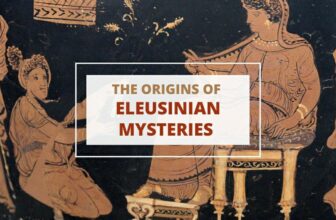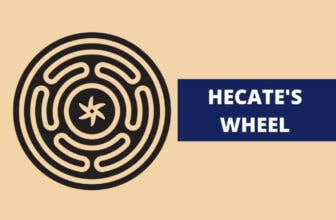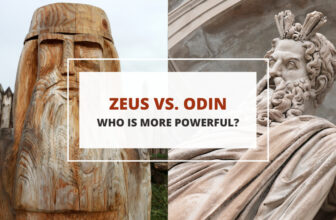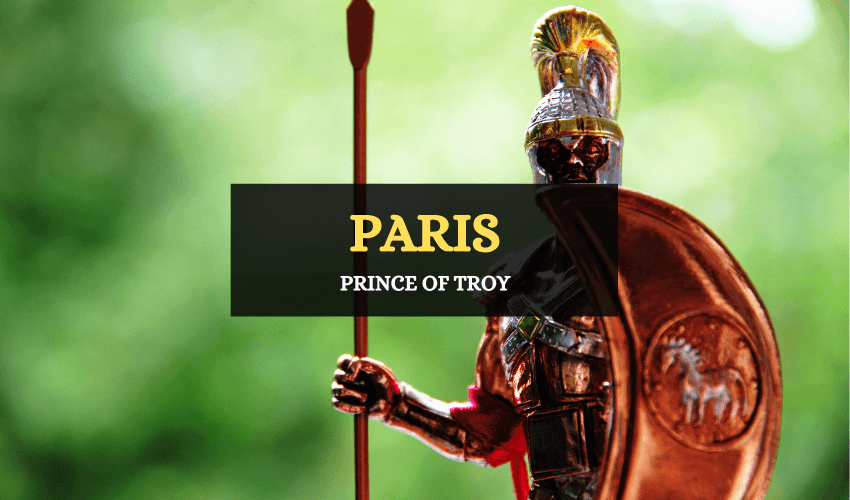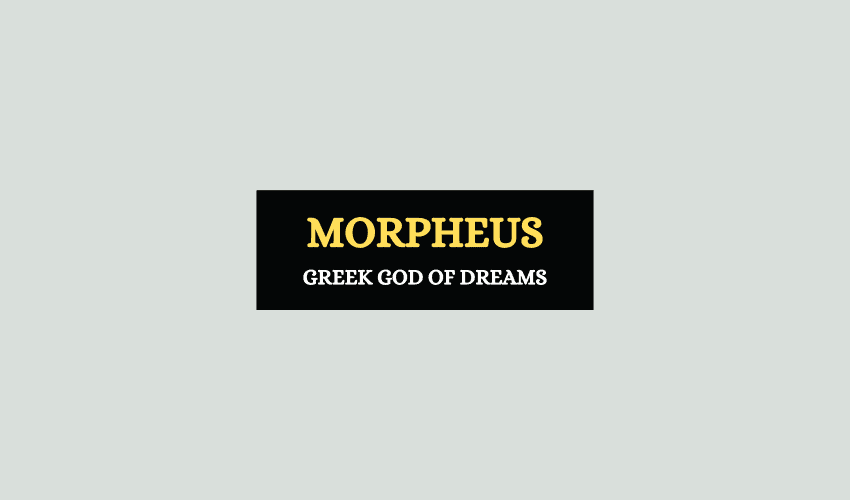
Table of Contents
Morpheus, a Greek god of dreams, is one of the lesser known deities in Greek mythology. Although not many people know about him as a god, his name has been used in popular comic and film franchises, such as the Matrix. Morpheus formed dreams and through them, he could appear to mortals in whatever form he chose. Let’s take a closer look at his story and who he was.
Morpheus’ Origins
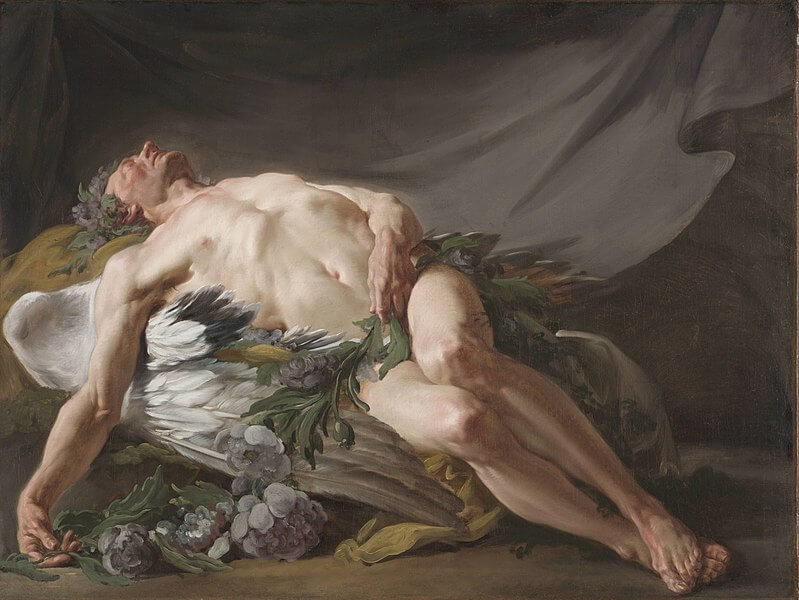
Morpheus was one of the Oneiroi, dark-winged spirits (or daimones) of dreams, either prophetic or meaningless. They were the offspring of Erebus, the primordial god of darkness, and Nyx, the goddess of the night. In ancient sources, however, the Oneiroi were unnamed. It’s said that there were a 1000 of them.
Morpheus’ name was derived from the Greek word ‘morphe’ which means ‘to form’ and it seems the name was fitting since he was the god who formed people’s dreams. He often slept in a cave full of poppy seeds while he was busy working. According to certain sources, this is the reason why the poppy flower has also been used throughout history to treat insomnia because of its hypnotic properties and the very effective opium-based medication for treating severe pain is called ‘morphine’.
Because Morpheus had to oversee the dreams of all mortals, he was said to be one of the busiest gods who hardly had time for a wife or a family. In some interpretations of his story, he was thought to have been the lover of Iris, the messenger goddess.
Some sources say that Morpheus and his family lived in the land of dreams which no one but the Olympian gods could enter. It had an enormous gate that was guarded by two of the most fearsome monsters ever seen. The monsters manifested the fears of anyone who tried to get in uninvited.
Morpheus as the Son of Hypnos
Ovid had made several adaptations to the original idea of Morpheus and the Oneiroi, and some of these changes included their parentage. Morpheus’ father was no longer considered to be Erebus but was instead said to be Somnus, the Roman Equivalent of Hypnos, the Greek god of sleep.
According to Ovid, there were three main Oneiroi:
- Phobetor – also known as Icelos. He could morph into any animal he chose and get into people’s dreams. Phobetor was the creator of all scary or phobic dreams. Simply put, he gave people nightmares.
- Phantasos – he could mimic all inanimate objects as well as water and fauna. He created phantasmic or unreal dreams.
- Morpheus – Morpheus could take on the appearance, characteristics and sounds of anyone he chose. This talent was what set him apart from his brothers as well. He also had the ability to enter and influence the dreams of kings, heroes and even Gods. Because of this ability, he was made the leader (or king) of all the Oneiroi.
Alcyone’s Dream
Morpheus didn’t appear in any of his own myths but he did appear in the myths of other deities and mortals. One of the most famous myths in which he played a role was the tragic tale of Alcyone and Ceyx, who were husband and wife. One day, Ceyx was caught in a heavy storm and died at sea. Then Hera, the goddess of childbirth and marriage, decided that Alcyone had to be informed about her husband’s death immediately. Hera sent the message through Iris, the messenger goddess to Somnus, instructing him to inform Alcyone that same night itself.
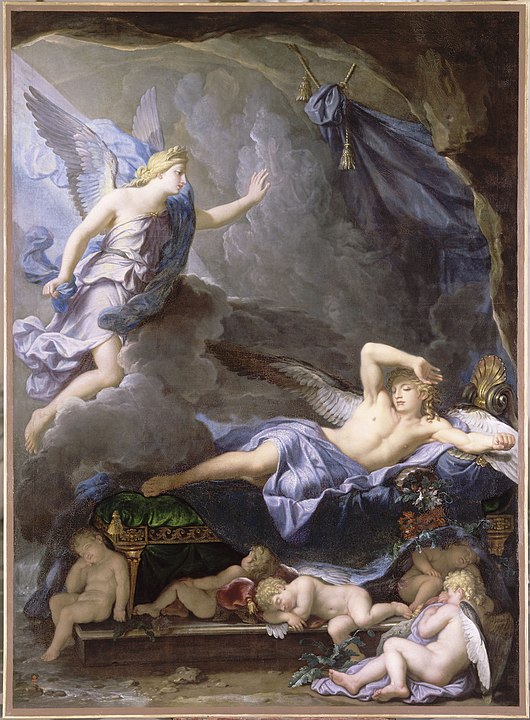
Somnus sent his son Morpheus to give the message to Alcyone but Morpheus waited until he thought Alcyone would be asleep. Then, Morpheus entered her dream world. Drenched in seawater, he showed up as Ceyx in Alcyone’s dream and informed her that he had passed away at sea. He also told her that he wanted all the funeral rites to be performed immediately. In the dream, Alcyone tried to hold on to him, but just as she touched Morpheus, she woke up. Morpheus had successfully passed the message to Alcyone because as soon as she woke up, she knew that she had become a widow.
Alcyone found the body of her husband Ceyx washed up on the seashore and filled with grief, she committed suicide by throwing herself into the sea. However, the gods took pity on the couple and turned them into Halcyon birds so that they could be together forever.
Representation of Morpheus
According to Ovid, Morpheus was a deity in the form of a man with wings. Some statues of him have been sculpted portraying him with wings as Ovid had described, but others depict him with one winged ear. The winged ear is said to be symbolic of how Morpheus listened to people’s dreams. He listened with his mortal ear and then delivered the gods’ message to the people through their dreams using his winged ear.
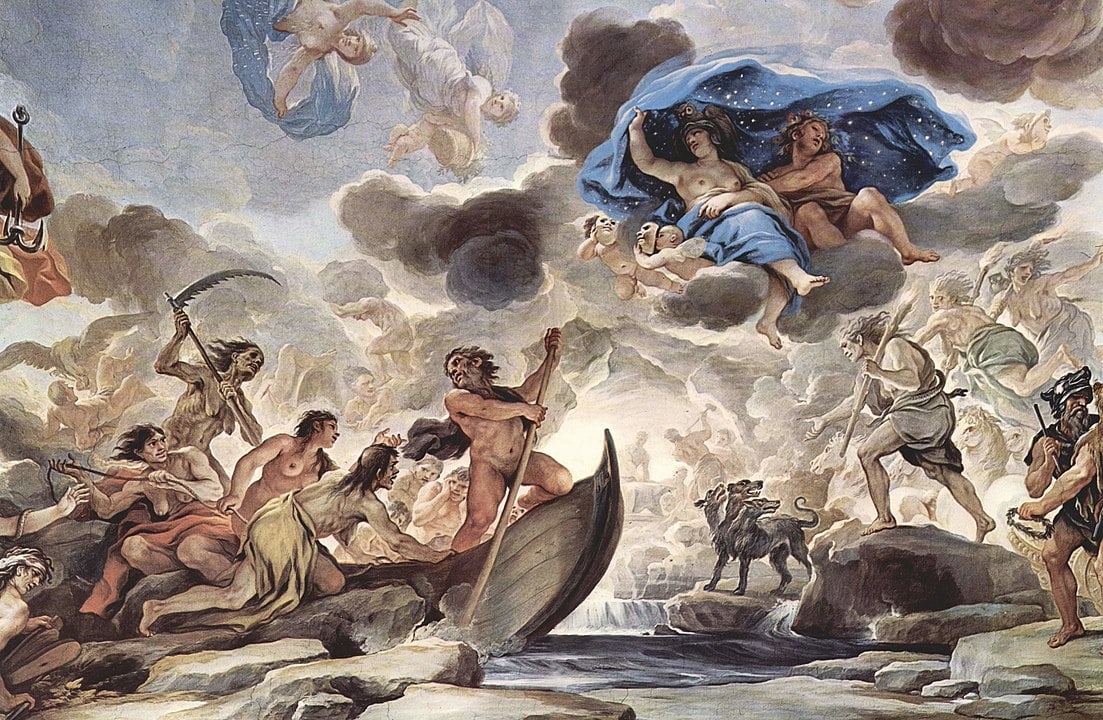
Morpheus in the Matrix Franchise
The Matrix is a highly popular American media franchise which features a character called Morpheus. It’s said that the character and a large part of the story were inspired by the mythological Greek god of dreams. The character was named after the deity because he was involved with the ‘dreaming’ in the Matrix.
The Greek god Morpheus lived with his family in a protected dream world and this carries over to the character Morpheus in the Matrix who states that Neo lives in a dream world. He famously offers Neo two pills:
- One blue to make him forget about the dream world
- One red to make him enter the real world
Therefore, Morpheus had the ability to enter and leave the dream world whenever he needed to.
Ovid and Morpheus
During the Roman period, the concept of the Oneiroi was expanded, most notably in the works of Ovid, the Roman poet. In the year 8AD, Ovid published ‘Metamorphoses’, a Latin narrative poem known as one of his best works. He reworked and retold some of the most well-known tales in Greek mythology in this collection. Metamorphoses is said to be the first source which mentions Morpheus as the god of mortals’ dreams.
In Brief
Although Morpheus was worshipped faithfully by the ancient Greeks, the belief in the god of dreams wasn’t major. However, his name continues to be very popular in the modern world. He never played a major role in any Greek myth, but he was always on the sidelines, influencing and guiding those who appeared in some of the most famous and popular tales in Greek mythology.




